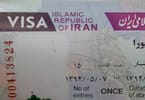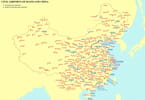Netwaye dezòd la
IATA urges governments to reconsider all Omicron measures. “The goal is to move away from the uncoordinated, evidence absent, risk-unassessed mess that travelers face. As governments agreed at ICAO and in line with the WHO advice, all measures should be time-bound and regularly reviewed. It is unacceptable that rushed decisions have created fear and uncertainty among travelers just as many are about to embark on year-end visits to family or hard-earned vacations,” said Walsh.
The industry demand asks governments to implement commitments that they have made through ICAO:
“We also commit to a multilayer risk management strategy for international civil aviation, which is adaptable, proportionate, non-discriminatory and guided by scientific evidence in close cooperation and coordination with the public health sector, with agreed practices harmonized to the greatest extent possible, for air travel purposes, using commonly accepted epidemiological criteria, testing requirements and vaccination, and underpinned by regular review, monitoring and timely information-sharing among States,” ICAO HLCC Ministerial Declaration.
“Despite this clear commitment, very few governments have addressed early over-reactions to Omicron. With the European CDC already signaling that a de-escalation of measures will likely be needed in the coming weeks, governments must urgently put actions behind the commitments that they made at ICAO,” said Walsh.
European Centre for Disease Control and Prevention (ECDC) in the latest update to its Threat Assessment Brief on the implications of Omicron in Europe notes that “given the increasing number of cases and clusters in the EU/EEA without a travel history or contact with travel-related cases, it is likely that within the coming weeks the effectiveness of travel-related measures will significantly decrease, and countries should prepare for a rapid and measured de-escalation of such measures.”
“Once a measure is put in place, it is very challenging to get governments to consider reviewing it, let alone removing it, even when there is plenty of evidence pointing in that direction. That is why is it essential that governments commit to a review period when any new measure is introduced. If there is an over-reaction—as we believe is the case with Omicron—we must have a way to limit the damage and get back on the right track. And even in more normal circumstances, we must recognize that our understanding of the disease can grow exponentially even in a short period of time. Whatever measures are in place need to be constantly justified against the latest and most accurate scientific knowledge,” said Walsh.






















